Woolworths hits back at customer's Facebook post over 'disgusting' packaging
Woolworths has hit back at a disgruntled customer complaining about plastic food packaging.
The Sydney woman wrote on Facebook she visited the Rosebery store in the city’s south on Thursday.
“Woolworths, why is almost every item of fresh produce at your new Rosebery store wrapped in plastic?” she wrote.
“Why do we need three sweet potatoes wrapped in plastic? A handful of apples?”
She called it “really disgusting”.
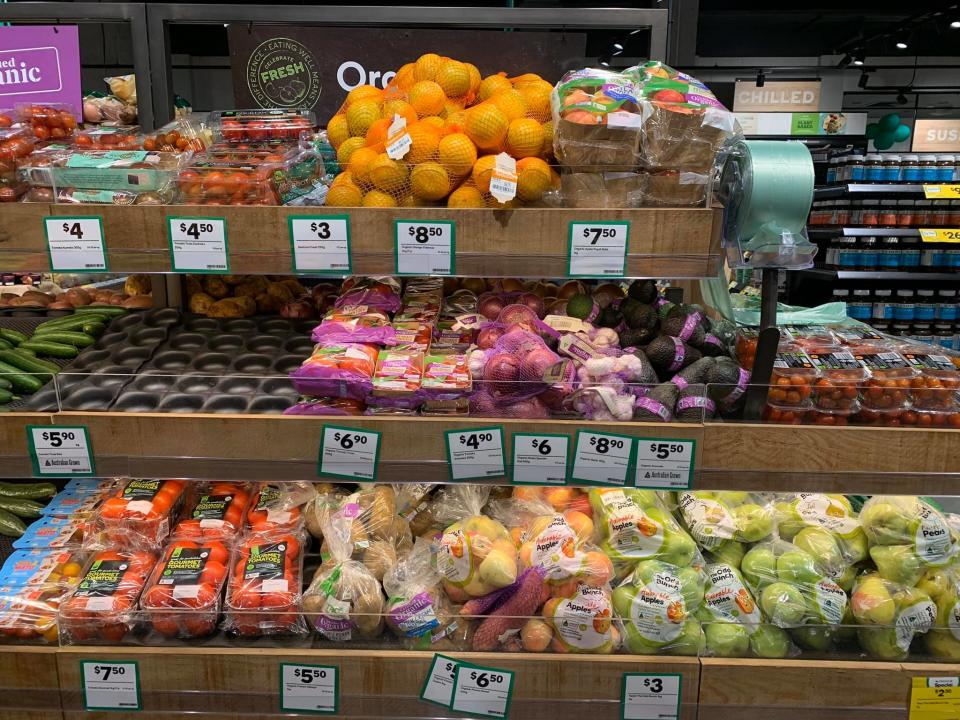
But Woolworths, in a response to her post, wrote it is not only “committed” to reducing plastic waste the packaging is being used for a specific purpose.
“We’ve made some inroads that show we're making progress,” the supermarket wrote.
“We've taken out 187 tonnes of plastic in produce in the last 12 months and we're aiming for another 350 tonnes by July.
“The packaging on produce helps with reducing food waste.”
Why plastic reduces food waste
Every Australian is wasting on average 289 kilograms of food a year, and the nation is shockingly the fourth biggest food waster in the world.
According to Rabobank’s 2019 Food Wastage Report, the average household is dumping $1026 worth of food in the bin rather than their stomachs every year.
Rabobank Australia’s head of client experience, Glenn Wealands, said it was one of the most significant problems facing the country today.
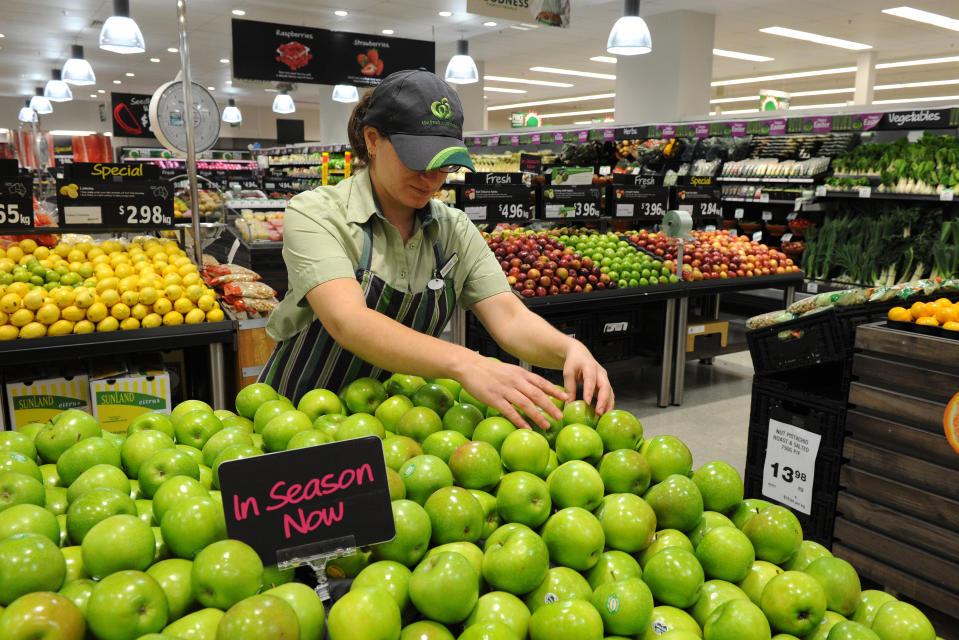
Woolworths said using plastic packaging on fresh produce “extends the shelf life” as it’s transported from the farm.
“Most produce will be available loose for purchase as we know both options appeal to different customers, with many taking advantage of pre-packed version to better manage budgets at the checkout,” it wrote.
Retail expert professor Gary Mortimer from Queensland University of Technology echoed that statement when he spoke to Yahoo News Australia in November.
“We look at fruit and vegetables and study them for quality. With packaged ones you don’t get that choice,” he said.
“The loose ones we’ll look at and leave the bad ones on the shelf. Since we don’t have that choice with pre-packaged items there’s no food waste.”
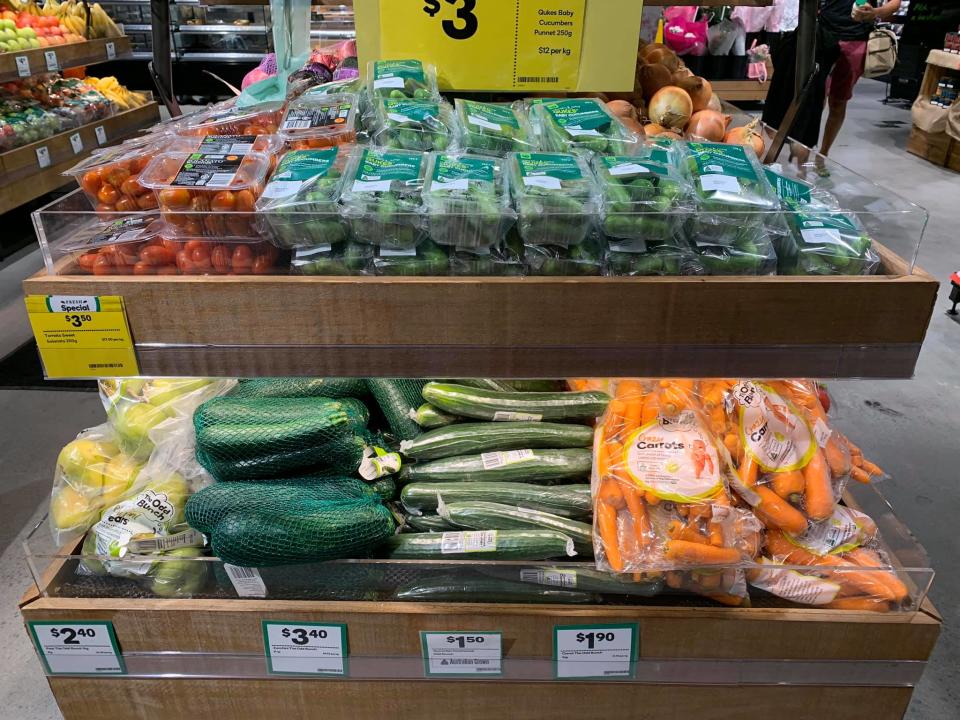
Greenhouse gases or landfill: our choice
Food scientist Dr Felicity Denham told the ABC last year plastic remains an issue but it did help prevent food wastage.
She told the network continental cucumbers wrapped in plastic increased their shelf life by six days.
But Dr Denham said we’re facing a conundrum. If we choose to use plastic, we have more for landfill. If we waste food and it rots we’re producing carbon dioxide and methane which are greenhouse gases.
"So it depends what type of environmental impact you're concerned about, do you want to have solid landfill or greenhouse gas emissions?" Dr Denham told the ABC.
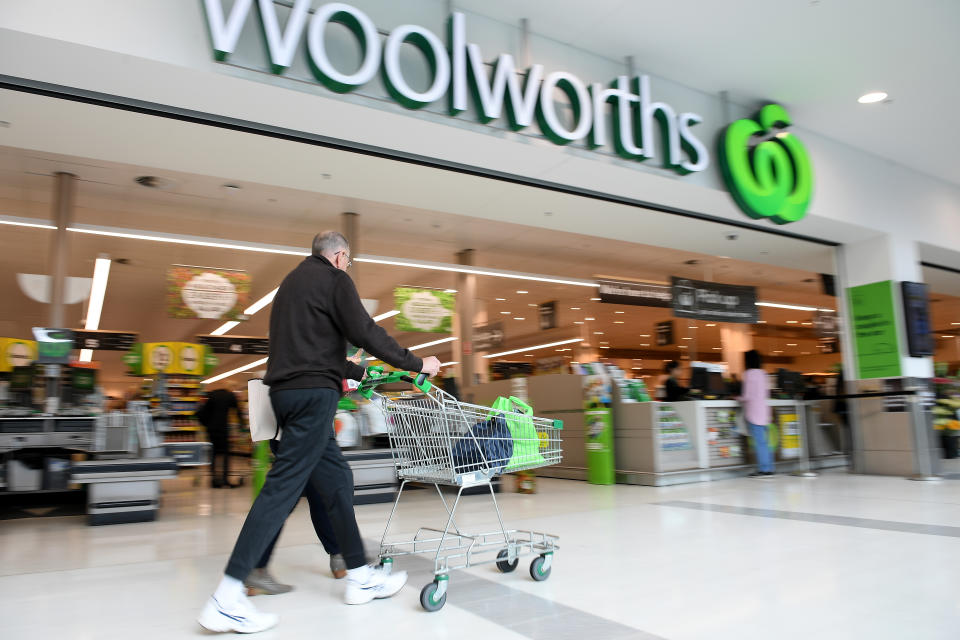
People will also buy more produce wrapped in plastic because it can be cheaper.
Mr Mortimer said the reason behind this is because stacking plastic containers is easier and takes less time than placing loose fruit and veg on shelves.
He added most most supermarkets don’t package their own produce. They come prepackaged.
Woolworths and food wastage: ‘The Odd Bunch’
One of Woolworths’ initiatives in place to combat food wastage is The Odd Bunch.
The Odd Bunch consists of unusually shaped fruits and vegetables which might not appeal to all consumers.
They come pre-packaged.
Woolies claims The Odd Bunch has stopped 115 million kilograms of odd-shaped fruit and veg ending up in landfill each year.
The ‘trade-off’
A report conducted by RMIT in Melbourne and by sustainability consultants Empauer found “the trade-off” between food waste and packaging is a “delicate balance”.
“More packaging can result in less food waste and therefore less impacts,” the report reads.
“A more appropriate material type would also offer protection benefits to fresh produce, resulting in extended shelf life, less food waste, and reduced overall carbon impact.
“The emission effect of food-to-packaging ratios should also be considered, and they vary widely depending on the type of food, packaging material, method of production and transportation for both packaging and food.”
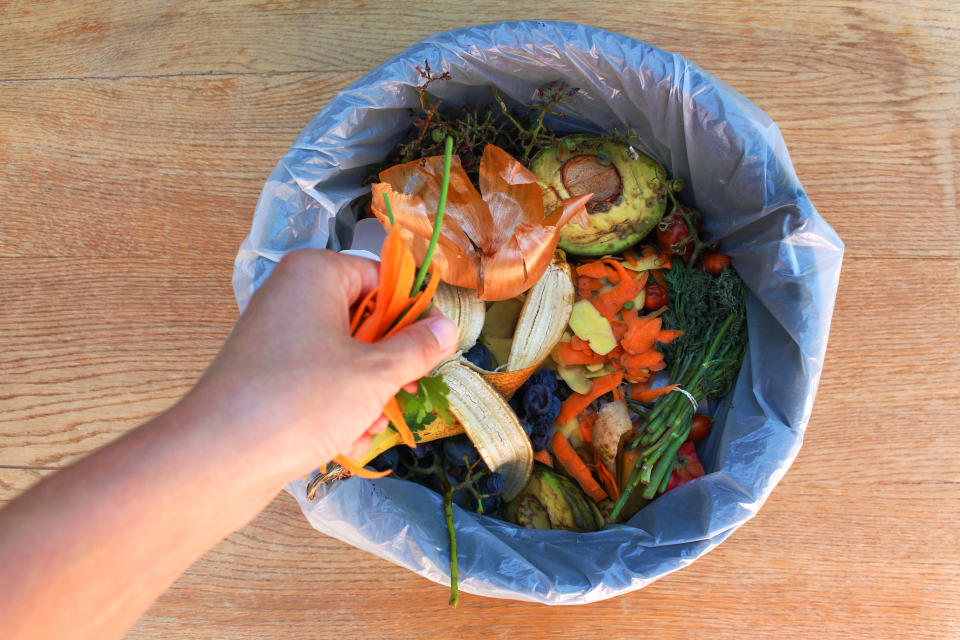
It was also found consumer behaviour plays a role in food wastage too, and that is affected by how efficient the packaging is in retaining freshness.
The report also claims customers don’t actually realise plastic packaging increases shelf life either.
“Studies have found that many consumers do not recognise that packaging protects food in the home, which in turn leads many consumers to adopt strategies that potentially decrease the longevity of products, leading to unnecessary waste,” the report reads.
It said examples include people who take things out of containers or pierce and break them.
It suggested a solution would be using polyethylene (PE) bags as this was “beneficial in conserving water and maintaining freshness in most of the products tested”.
Researchers tested mushrooms, pears and strawberries along with other produce.
Do you have a story tip? Email: newsroomau@yahoonews.com.
You can also follow us on Facebook, Instagram and Twitter and download the Yahoo News app from the App Store or Google Play.




